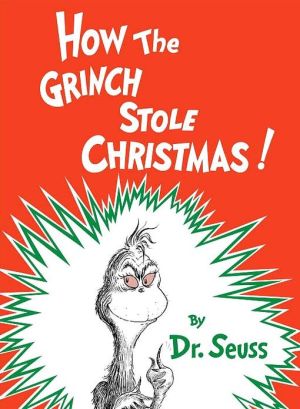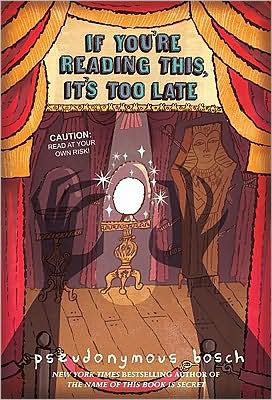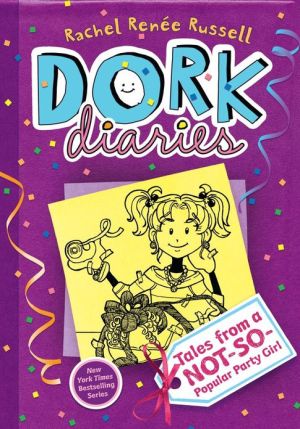Maniac Magee
Jeffrey Lionel "Maniac" Magee might have lived a normal life if a freak accident hadn't made him an orphan. After living with his unhappy and uptight aunt and uncle for eight years, he decides to run—and not just run away, but run. This is where the myth of Maniac Magee begins, as he changes the lives of a racially divided small town with his amazing and legendary feats.\ \ \ After his parents die, Jeffrey Lionel Magee's life becomes legendary, as he accomplishes...
Search in google:
Jeffrey Lionel "Maniac" Magee might have lived a normal life if a trolley accident hadn't made him an orphan. After living with his unhappy and uptight aunt and uncle for eight years, he decides to run-and not just run away, but run. And this is where the myth of Maniac Magee begins, as he changes the lives of a racially divided small town with his amazing and legendary feats.Publishers WeeklyIn this modern-day tall tale, Spinelli ( Dump Days ; Jason and Marceline ) presents a humorous yet poignant look at the issue of race relations, a rare topic for a work aimed at middle readers. Orphaned as an infant, Jerry Magee is reared by his feuding aunt and uncle until he runs away at age eight. He finds his way to Two Mills, Pa., where the legend of ``Maniac'' Magee begins after he scores major upsets against Brian Denehy, the star high school football player, and Little League tough guy, John McNab. In racially divided Two Mills, the Beales, a black family, take Maniac in, but despite his local fame, community pressure forces him out and he returns to living at the zoo. Park groundskeeper Grayson next cares for the boy, but the old man dies and Maniac moves into the squalid home of the McNabs, who are convinced a race war is imminent. After a showdown with his nemesis, Mars Bar, Maniac bridges the gap between the two sides of town and finally finds a home. Full of snappy street-talk cadences, this off-the-wall yarn will give readers of all colors plenty of food for thought. Ages 8-12. (Apr.)
Maniac Magee\ \ By Jerry Spinelli \ LITTLE, BROWN\ Copyright © 1990 Jerry Spinelli All right reserved.\ ISBN: 0-316-80906-3 \ \ \ Chapter One\ Maniac Magee was not born in a dump. He was born in a house, a pretty ordinary house, right across the river from here, in Bridgeport. And he had regular parents, a mother and a father. \ But not for long.\ One day his parents left him with a sitter and took the P & W high-speed trolley into the city. On the way back home, they were on board when the P & W had its famous crash, when the motorman was drunk and took the high trestle over the Schuylkill River at sixty miles an hour, and the whole caboodle took a swan dive into the water.\ And just like that. Maniac was an orphan. He was three years old.\ Of course, to be accurate, he wasn't really Maniac then. He was Jeffrey. Jeffrey Lionel Magee.\ Little Jeffrey was shipped off to his nearest relatives, Aunt Dot and Uncle Dan. They lived in Hollidaysburg, in the western part of Pennsylvania.\ Aunt Dot and Uncle Dan hated each other, but because they were strict Catholics, they wouldn't get a divorce. Around the time Jeffrey arrived, they stopped talking to each other. Then they stopped sharing.\ Pretty soon there were two of everything in the house. Two bathrooms. Two TVs. Two refrigerators. Two toasters. If it were possible, they would have had two Jeffreys. As it was, they split him up as best they could. For instance,he would eat dinner with Aunt Dot on Monday, with Uncle Dan on Tuesday, and so on.\ Eight years of that.\ Then came the night of the spring musicale at Jeffrey's school. He was in the chorus. There was only one show, and one auditorium, so Aunt Dot and Uncle Dan were forced to share at least that much. Aunt Dot sat on one side. Uncle Dan on the other.\ Jeffrey probably started screaming from the start of the song, which was "Talk to the Animals," but nobody knew it because he was drowned out by all the other voices. Then the music ended, and Jeffrey went right on screaming, his face bright red by now, his neck bulging. The music director faced the singers, frozen with his arms still raised. In the audience faces began to change. There was a quick smatter of giggling by some people who figured the screaming kid was some part of the show, some funny animal maybe. Then the giggling stopped, and eyes started to shift and heads started to turn, because now everybody could see that this wasn't part of the show at all, that little Jeffrey Magee wasn't supposed to be up there on the risers, pointing to his aunt and uncle, bellowing out from the midst of the chorus: "Talk! Talk, will ya! Talk! Talk! Talk!"\ No one knew it then, but it was the birth scream of a legend.\ And that's when the running started. Three springy steps down from the risers - girls in pastel dresses screaming, the music director lunging - a leap from the stage, out the side door and into the starry, sweet, onion-grass-smelling night.\ Never again to return to the house of two toasters. Never again to return to school.\ (Continues...)\ \ \ \ \ Excerpted from Maniac Magee by Jerry Spinelli Copyright © 1990 by Jerry Spinelli. Excerpted by permission.\ All rights reserved. No part of this excerpt may be reproduced or reprinted without permission in writing from the publisher.\ Excerpts are provided by Dial-A-Book Inc. solely for the personal use of visitors to this web site. \ \ \
\ Publishers Weekly - Publisher's Weekly\ In this modern-day tall tale, Spinelli Dump Days ; Jason and Marceline presents a humorous yet poignant look at the issue of race relations, a rare topic for a work aimed at middle readers. Orphaned as an infant, Jerry Magee is reared by his feuding aunt and uncle until he runs away at age eight. He finds his way to Two Mills, Pa., where the legend of ``Maniac'' Magee begins after he scores major upsets against Brian Denehy, the star high school football player, and Little League tough guy, John McNab. In racially divided Two Mills, the Beales, a black family, take Maniac in, but despite his local fame, community pressure forces him out and he returns to living at the zoo. Park groundskeeper Grayson next cares for the boy, but the old man dies and Maniac moves into the squalid home of the McNabs, who are convinced a race war is imminent. After a showdown with his nemesis, Mars Bar, Maniac bridges the gap between the two sides of town and finally finds a home. Full of snappy street-talk cadences, this off-the-wall yarn will give readers of all colors plenty of food for thought. Ages 8-12. Apr.\ \ \ \ \ School Library JournalGr 6-10-- Warning: this interesting book is a mythical story about racism. It should not be read as reality. Legend springs up about Jeffrey ``Maniac'' Magee, a white boy who runs faster and hits balls farther than anyone, who lives on his own with amazing grace, and is innocent as to racial affairs. After running away from a loveless home, he encounters several families, in and around Two Mills, a town sharply divided into the black East End and the white West End. Black, feisty Amanda Beale and her family lovingly open their home to Maniac, and tough, smart-talking ``Mars Bar'' Thompson and other characters are all, to varying degrees, full of prejudices and unaware of their own racism. Racial epithets are sprinkled throught the book; Mars Bar calls Maniac ``fishbelly,'' and blacks are described by a white character as being ``today's Indians.'' In the final, disjointed section of the book, Maniac confronts the hatred that perpetuates ignorance by bringing Mars Bar to meet the Pickwells--``the best the West End had to offer.'' In the feel-good ending, Mars and Maniac resolve their differences; Maniac gets a home and there is hope for at least improved racial relations. Unreal? Yes. It's a cop-out for Spinelli to have framed this story as a legend--it frees him from having to make it real, or even possible. Nevertheless, the book will stimulate thinking about racism, and it might help educate those readers who, like so many students, have no first-hand knowledge of people of other races. Pathos and compassion inform a short, relatively easy-to-read story with broad appeal, which suggests that to solve problems of racism, people must first know each other as individuals. --Joel Shoemaker, Tilford Middle School, Vinton, IA\ \ \ School Library JournalGr 3-6-Half tall tale, half novel, Jerry Spinelli's Newbery award winner (Little, 1990) is beautifully narrated by film and television actress S. Epatha Merkerson. The story, which explores such complex concepts as home and race relations, is consistently fresh and surprising. Maniac's search for an address to call his own is poignant, while his feats such as untying Cobble's knot and hitting an "inside-the-park home-run but" with a "frogball" are pure tall tale. Merkerson's word-for-word narration is excellent. She gives subtle distinction to the accents and speech of such varied characters as McNab, Mars Bar, Amanda Beale, and Grayson. Her voice could serve as a definition of the word mellifluous, which makes listening to the story even more pleasurable. No music or other sound effects interrupt the text. Technical quality is excellent throughout. This would be an excellent choice for group listening in classrooms, and is equally good for individual listening. Definitely a first purchase choice for all audiobook collections serving elementary grade students.-Louise Sherman, formerly Anna C. Scott School, Leonia, NJ Copyright 2001 Cahners Business Information.\ \








